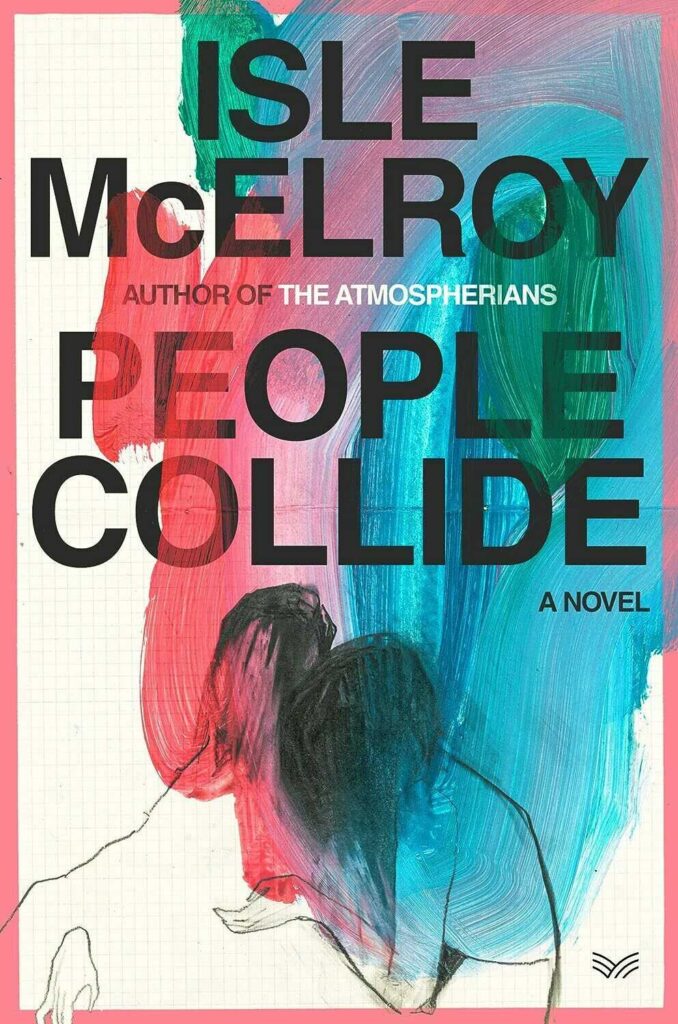
People Collide
Isle McElroy, 256 pgs, HarperVia, harpercollins.com, $28.99 USD
Can you ever really know your partner? You might live with them and even share a bed, but what are they really like? One might have to literally walk in their shoes to find out. And in Isle McElroy’s new novel, this is exactly what happens. People Collide follows Eli and Elizabeth, a young married couple living in Bulgaria. Eli is something of a writer, having published a little over the years, while Elizabeth is talented, whip-smart, and teaching English in a state-department-sponsored gig. One morning, on his way to visit his wife at school, Eli finds he has inexplicably switched bodies with Elizabeth.
People Collide unfolds like a thriller, with a chase across the streets and cafes of Bulgaria and then across Europe as Eli tries to find not only his wife, but quite literally to find himself. There’s a web of memorable characters: the couple who own a cafe, a hip Parisian bartender, an eccentric man who searches for meaning in random events. And at the core of People Collide, there’s the couple of Eli and Elizabeth and their respective parents. People Collide is as much about marriage and what draws people together (and apart) as it is about gender or art. Eli struggles to see what Elizabeth sees in him, and even as he inhabits her body he still shows her a distant form of respect, keeping his wife on a pedestal. At the same time, we can also see the fault lines in their arrangements, in how a woman on the fast-track to success managed to meet and fall for a guy who seems to stumble through life.
Of course, there’s more to it than just this: while Eli is self-conscious and lacks confidence, he shows a remarkable ability to adapt and improvise. In some ways, he resembles the protagonist of McElroy’s first novel The Atmospherians: a chubby kid who didn’t fit in and developed disordered eating, growing to resemble the women he surrounded himself with. But while The Atmospherians was interested in toxic masculinity, People Collide is interested in what lies beneath, in what makes people themselves and how two seemingly incompatible people are able to make a marriage work.
Late in the novel, one of McElroy’s characters dryly says that “it’s easy to confuse wanting to be someone with wanting to be with them.” And that’s the rub: what does Eli want? Does he want to be with Elizabeth? Or does he want to be her? And, if so, what does it feel like when you finally get that wish?
